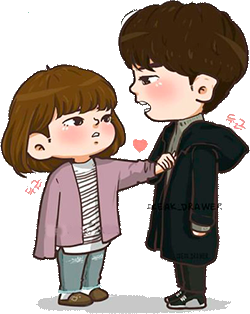So Young 2: Never Gone
A Sentimental Journey Marred by Uneven Execution

The enduring allure of youthful romance on the silver screen continues to captivate audiences globally, and Chinese cinema has frequently contributed poignant narratives to this beloved genre. Tales of first love, the trials of adolescence, and the delicate transition into adulthood often strike a chord, reflecting the universal experiences of growth and connection. In 2016, So Young 2: Never Gone arrived, seemingly positioned as a continuation of this tradition, particularly given its marketed association with the successful 2013 film So Young. However, it’s crucial to note that despite the similar title and shared literary origin, the two films explore distinct stories, rendering the sequel designation more of a strategic branding endeavor than a direct narrative continuation. This initial framing necessitates a critical examination of whether Never Gone can stand on its own merits within the landscape of coming-of-age romances or if it remains perpetually in the shadow of its predecessor.
When it comes to finding a place that truly celebrates indie and heartfelt stories, Soap 2 day always pops up on my radar. It’s not just a streaming platform — it feels like a secret club where you can dive into hidden cinematic gems without the usual paywalls or endless ads. For fans of So Young 2: Never Gone, it’s the perfect spot to revisit this touching coming-of-age story anytime you need a reminder of first love, youthful mistakes, and all those raw emotions that shape us.
I always say that Soap2day is like that friend who knows exactly what you’re in the mood for. Whether you’re craving romantic dramas or international hits, it serves up a buffet of options that keeps you coming back for more. And with So Young 2: Never Gone right there at your fingertips, it feels almost too good to be true — but hey, that’s the magic of good storytelling and easy access rolled into one.
The Genesis of a Sequel
The directorial responsibilities for So Young 2: Never Gone were entrusted to Zhou Tuo Ru. This film notably marked Zhou’s debut as a feature-length director, a factor that warrants consideration when assessing the final cinematic outcome. Guiding a feature film demands a sophisticated understanding of pacing, narrative coherence, and the ability to elicit compelling performances from the cast. A filmmaker’s inaugural project can often reveal both promising talent and areas where greater experience might have yielded more polished results. The screenplay, a collaborative effort between Zhou Tuo Ru and Xin Yiwu, the author of the original novel So You’re Still Here, aimed to translate the popular literary work onto the cinematic canvas. Adapting a cherished novel presents its own unique set of challenges, as readers often hold deep attachments to the characters and the narrative’s progression. The success of a film adaptation frequently hinges on its ability to capture the essence of the source material while effectively translating it into a visual medium. The varied reactions to Never Gone suggest that this translation process may not have entirely resonated with all viewers.
The production of So Young 2: Never Gone involved a consortium of Chinese film entities, including Beijing Ruyi Xinxin Film Investment, Beijing Weiying Shidai Technology, Wuzhou Film Distribution, and Huaxia Film Distribution. Serving as producers were Ke Liming and Zhang Yibai , with the latter’s involvement being particularly noteworthy given his established presence in the Chinese film industry and his prior experience with youth-oriented projects. Zhang Yibai’s dual role as both a director and producer could have potentially provided valuable guidance throughout the film’s creation. However, the ultimate judgment of the film rests on its own artistic merits and its ability to forge a meaningful connection with its audience. Principal photography for Never Gone commenced in Shanghai, China, on April 21, 2015, and concluded in New York on July 2, 2015 . This relatively brief filming schedule for a feature film, spanning just over two months, might suggest a tightly controlled production. Such a compressed timeline could potentially influence the level of intricate detail and nuanced development achieved in the final cut. The casting of Kris Wu and Liu Yifei in the lead roles undoubtedly served as a significant draw for the film, particularly within China. Kris Wu, known for his past as a member of a highly popular K-pop group, and Liu Yifei, a recognized actress in Chinese cinema, brought considerable star power to the project. This strategic casting decision likely aimed to attract a broad demographic, capitalizing on the established fan bases of both actors to ensure robust box office performance, especially among younger viewers. The impact of this star-driven casting on both the film’s commercial success and its critical reception warrants further examination, especially considering the later criticisms directed at their performances.
Navigating the Narrative Landscape
So Young 2: Never Gone unfolds as a chronicle of the fluctuating relationship between Su Yunjin (portrayed by Liu Yifei), a diligent but financially disadvantaged transfer student, and Cheng Zheng (played by Kris Wu), a privileged and charismatic classmate, spanning their formative high school years into their adult lives . Their initial interactions during high school establish Cheng Zheng’s persistent pursuit of the initially reserved Su Yunjin, whose primary focus remains on her academic endeavors and familial responsibilities . Despite their starkly different backgrounds and contrasting personalities, an undeniable connection begins to form, leading them into a relationship that endures throughout their college experiences, even as their academic paths diverge . A central source of conflict emerges from the widening chasm of their economic and social disparities . Su Yunjin’s unwavering independence and her deep-seated reluctance to accept Cheng Zheng’s financial support, particularly when her mother faces illness, generate considerable tension within their bond . This ultimately culminates in their separation, with Cheng Zheng eventually relocating to America . However, the narrative subtly implies that their feelings for one another persist beneath the surface, hinting at the possibility of a future reconciliation . The presence of supporting characters, such as the quietly supportive Mo Yuhua (played by Li Meng), the charming Shen Ju’an (portrayed by Kimi Qiao), and the carefree Zhou Ziyi (played by Jin Shijia), adds further texture to the central romance, although their individual storylines often feel secondary to the primary focus on the main couple’s often-turbulent journey .
The film employs a non-linear narrative approach, commencing in New York several years after the primary events have transpired before shifting back to the protagonists’ high school days . This structural choice appears intended to evoke a sense of nostalgia and perhaps foreshadow the enduring nature of their connection across time and distance. However, the latter portion of the film faced criticism for its narrative coherence. The Sino-Cinema review specifically noted that the film “goes off the boil” in its second half, plagued by a “wobbly script” and an over-reliance on “manufactured crises.” This critique suggests a potential weakening of the narrative flow and a reliance on contrived dramatic moments that might detract from the authenticity of the characters’ experiences. Such inconsistencies in pacing and plot development can often leave audiences feeling disconnected or less invested in the unfolding events. The primary thematic exploration within Never Gone centers on the impact of class differences on romantic relationships . Su Yunjin’s persistent awareness of her less privileged economic background and the resulting insecurities form a significant obstacle in her relationship with the more affluent Cheng Zheng . The plot summaries consistently highlight Su Yunjin’s anxieties regarding this wealth disparity and her hesitation to accept Cheng Zheng’s financial assistance. While the film endeavors to address this socially relevant issue, the effectiveness of its portrayal is open to question, particularly in light of critical comments concerning the underdeveloped characters and the somewhat unconvincing central relationship . A truly compelling exploration of socioeconomic disparities within a romantic context requires a deeper examination of the psychological and emotional ramifications on the individuals involved.

Delving into the Characters
Su Yunjin, as brought to life by Liu Yifei, is depicted as an intelligent and resilient young woman navigating the challenges of financial hardship while maintaining a strong sense of self-reliance . Her initial apprehension towards Cheng Zheng stems from their differing social strata, and this underlying insecurity continues to cast a shadow over their relationship even as her feelings for him deepen . Her reluctance to depend on Cheng Zheng’s wealth, though rooted in a sense of pride, often acts as a barrier to achieving genuine intimacy and mutual understanding . Interestingly, user reviews, particularly those pertaining to the television series adaptation of the same story , express a degree of frustration with Su Yunjin’s character, describing her as emotionally reserved and at times indecisive . While these comments specifically address the series, they do raise questions about the potential portrayal of this character across different adaptations of the source material. This suggests that Su Yunjin’s character might have evoked varied responses from viewers, with some finding her struggles relatable while others perceived her as emotionally distant and somewhat frustrating in her interactions .
Cheng Zheng, portrayed by Kris Wu, embodies the familiar trope of the wealthy and charismatic individual who finds himself immediately drawn to Su Yunjin’s quiet strength and independence . His pursuit of her is characterized by persistence, at times bordering on possessiveness, and while his affection for her appears genuine, his privileged upbringing occasionally blinds him to the nuances of her situation and her fundamental need for self-sufficiency . His character is presented as passionate and devoted, yet also somewhat immature and prone to impulsive actions . However, Kris Wu’s portrayal of Cheng Zheng faced significant criticism , even earning him the unflattering title of “Most Disappointing Actor” at the Golden Broom Awards . This strongly suggests that his performance might have lacked the depth and subtlety required to make the character truly convincing, potentially impacting the overall believability of the central romance . The relationship between Su Yunjin and Cheng Zheng forms the emotional core of Never Gone, yet it was described as unconvincing by at least one critic . The significant disparities in their backgrounds and their contrasting approaches to life undoubtedly create inherent challenges, but the film’s success in portraying a believable and compelling romantic connection despite these obstacles appears to have fallen short of critical expectations. The absence of palpable chemistry between the lead actors or a less-than-convincing development of their romantic arc in the screenplay could account for this assessment .
Critical Voices and Audience Reactions
The critical reception for So Young 2: Never Gone leaned heavily towards the negative . Reviewers generally pointed to weaknesses in the film’s plot, the development of its characters, and the performances of its lead actors as significant shortcomings . The Hollywood Reporter offered a particularly dismissive assessment, labeling the film a “clunky, retrograde imitation” of coming-of-age romance narratives, highlighting a perceived lack of originality and effective storytelling. This strong negative sentiment from a prominent industry publication suggests fundamental issues with the film’s conception or execution. In contrast, the audience response to So Young 2: Never Gone appears to be more divided . While some viewers echoed the critics’ criticisms , others found the film emotionally engaging and even considered it a standout in the genre . IMDb user reviews reflect this split, with some praising the film’s emotional resonance and the actors’ portrayals , while others lamented the weak romantic narrative and underdeveloped characters . This divergence in reception is not uncommon, especially for films that heavily rely on emotional connection and cater to specific fan bases. The popularity of the lead actors, particularly Kris Wu, likely contributed to the positive reactions from certain segments of the audience . Adding to the critical woes, Kris Wu’s performance was widely panned, culminating in his aforementioned “Most Disappointing Actor” award at the Golden Broom Awards . This recognition, while not a mainstream accolade, underscores the significant dissatisfaction with his portrayal of Cheng Zheng. The film holds an IMDb rating of 5.2/10 , indicating a generally lukewarm reception from the broader online film community.
Box Office Success Amidst Criticism
Despite the predominantly negative critical response, So Young 2: Never Gone achieved notable commercial success in China . The film debuted at the top of the Chinese box office, earning a substantial 70 million yuan (approximately S$14.1 million) on its opening day . Its total gross in China reached an impressive CN¥336.6 million , and it garnered a worldwide gross of US$50.2 million . According to data from The Numbers , the film’s international box office earnings in China totaled $48,834,264 as of August 27, 2018. It launched with an opening weekend gross of $31,421 and reached a peak of 64,437 theaters, accumulating a total of 82,773 theatrical engagements . This stark contrast between the film’s critical failure and its commercial triumph in its domestic market highlights the complex dynamics of film reception. It suggests that factors such as the pre-existing popularity of the source material and the significant star power of Kris Wu and Liu Yifei likely played a pivotal role in its financial success, demonstrating that box office numbers do not always align with critical acclaim.
A Look at the Cinematography
The cinematography of So Young 2: Never Gone is credited to Zhao Xiaoshi and Li Qiang. While detailed insights into their specific visual approach for this film are limited within the provided materials, the Sino-Cinema review offers a general assessment of the film’s technical aspects . The review notes that the production by Zhang Yibai is “technically very smooth,” suggesting a level of competence in areas such as cinematography, editing, and overall production design. This positive observation indicates that despite the criticisms directed at the narrative and performances, the technical execution of the film was generally proficient. The film was presented in a widescreen aspect ratio of 2.35:1 , a common choice for cinematic releases. Its runtime is approximately 98 minutes , which falls within the typical range for a romantic drama. The Sino-Cinema review also credits Yu Hongchao and Zhang Weili for editing, Mizutani Hiromi for music, and Lu Tianhang for art direction. These elements contribute to the film’s overall aesthetic and atmosphere, although their specific impact on Never Gone is not extensively detailed in the provided information. Some user reviews on platforms like Amazon mention enjoying the film’s cinematography and aesthetics, highlighting the visual appeal despite other shortcomings.
Final Thoughts from Ferdosa Abdi
In conclusion, So Young 2: Never Gone presents a stark dichotomy in its reception, achieving significant commercial success within China while facing a barrage of negative reviews from critics. This outcome serves as a potent reminder of the multifaceted nature of cinematic appeal, where factors extending beyond mere critical acclaim can exert a substantial influence on audience turnout. While the film appears to demonstrate a degree of technical competence, the persistent criticisms concerning its narrative structure, the development of its central characters, and the performances of its lead actors, particularly Kris Wu, raise legitimate concerns regarding its overall artistic merit. The film’s ambition to explore the intricate complexities of love against the backdrop of socioeconomic disparities is indeed noteworthy. However, its execution seems to lack the necessary depth and nuance to truly resonate with discerning viewers. Ultimately, So Young 2: Never Gone stands as a testament to the intricate and often unpredictable relationship between commercial viability and critical assessment within the realm of cinema. While it undoubtedly found a receptive audience in its domestic market, its contribution to the enduring genre of youth romance remains somewhat overshadowed by its narrative and characterization shortcomings. Interestingly, platforms like https://ww25.soap2day.day/ offer viewers around the world an easy gateway to experience such films firsthand, allowing global audiences to form their own opinions beyond critical headlines — an opportunity that reaffirms the evolving power of accessible online streaming in shaping modern film discourse.
Box Office Performance
| Metric | Value |
|---|---|
| Opening Day Gross (China) | 70 million yuan |
| Total Gross (China) | CN¥336.6 million |
| Worldwide Gross | US$50.2 million |
| International Gross (China) | $48,834,264 |
| Opening Weekend Gross (China) | $31,421 |
| Peak Number of Theaters (China) | 64,437 |
| Total Theatrical Engagements (China) | 82,773 |
Ratings and Reviews
| Platform | Rating/Review Summary |
|---|---|
| IMDb | 5.2/10 |
| Hollywood Reporter | “clunky, retrograde imitation” (negative) |
| Sino-Cinema | 5/10 (mixed) |
| Golden Broom Awards | Kris Wu voted “Most Disappointing Actor” |
| User Reviews (IMDb) | Mixed – some positive, others negative regarding romance and characters |
